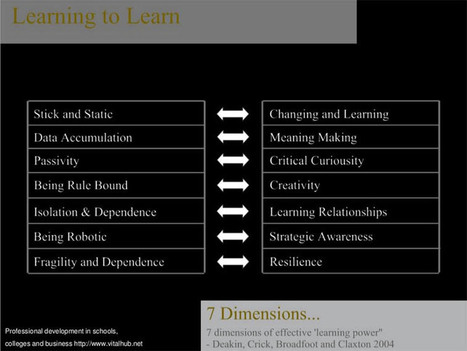A new report from the National Academies of Sciences, Engineering, and Medicine highlights the dynamic process of learning throughout the life span.
This presentation highlights the findings of that report, quoted directly from the report.
https://www.downes.ca/post/68693
Via Elizabeth E Charles



 Your new post is loading...
Your new post is loading...










